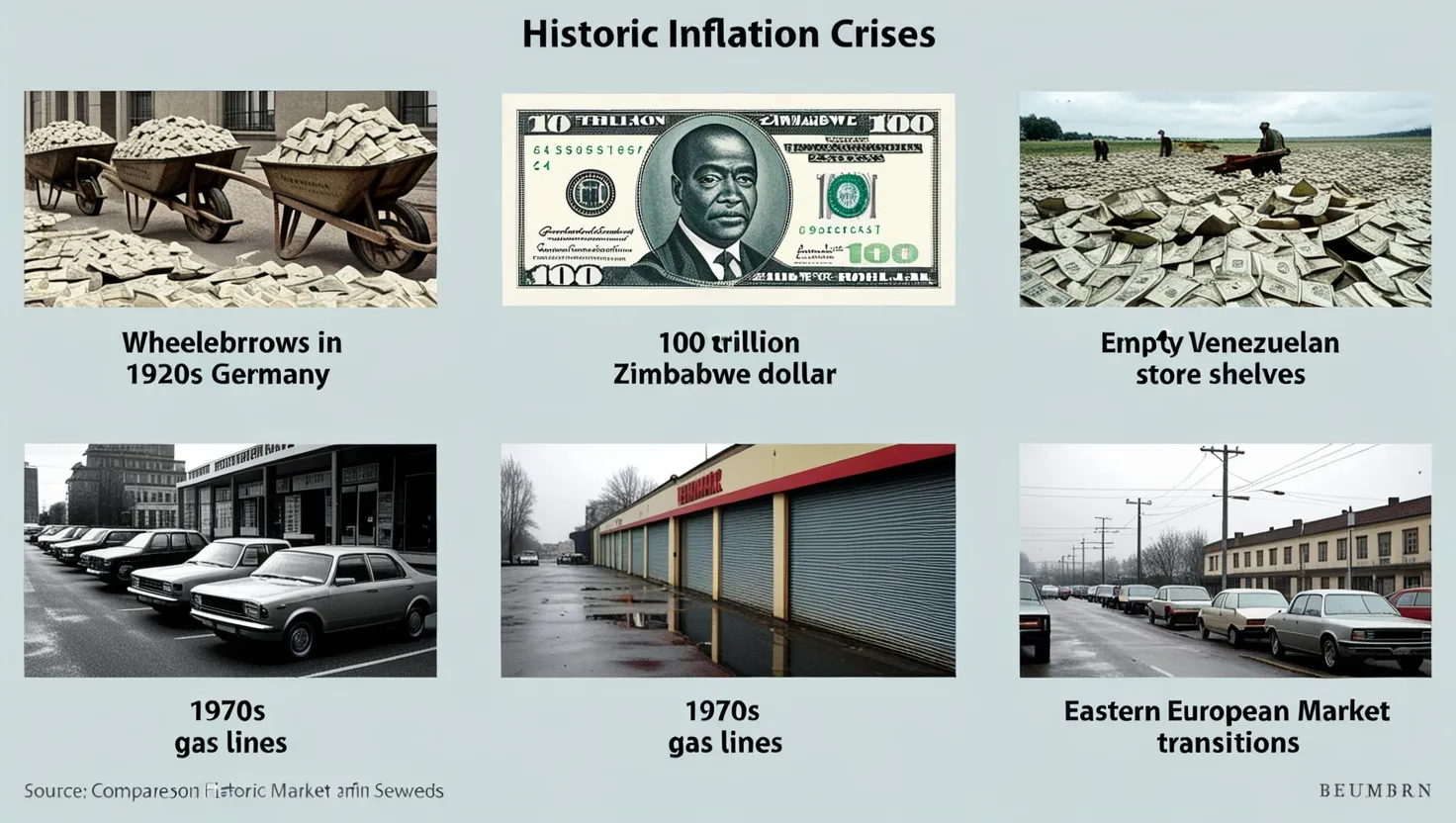A global trade war can arise when nations use economic measures like santions and trade barriers as tools to express disapproval or exert pressure against actions of another country that are perceived as disruptive to the established world order. The nation that feels aggrieved responds by imposing tariffs and other economic methods, aiming to shield its own interest. This action often provokes the targeted country to retaliate with its own set of economic restriction, setting off a spiraling exchange of trade barriers. Such disputes transcend mere small disagreements, reflecting deeper tensions over global norms and practices.
Global trade wars represent a modern form of conflict where battles are fought using economic tools rather than military force. This approach avoids the direct loss of life associated with traditional warfare. However, it can lead to significant human suffering. Economic hardships resulting from trade wars, such as job losses, higher costs of living, and reduced access to essential goods, can have a profound impact on the quality of life. The indirect effects, such as increased poverty, health issues, and social unrest, can be widespread, particularly in more vulnerable economies. Thus, while trade wars might not involve physical combat, their repercussions can be deeply felt on a human level, sometimes even exacerbating global inequalities.
Common Tactics:
- Sanctions: These are penalties imposed on a country, group, or individual to influence their behavior. Sanctions can include trade restrictions, freezing of assets, or travel bans. They are often used to force political or social change without resorting to military action.
- Currency Wars: Also known as competitive devaluations, currency wars occur when countries deliberately devalue their currency to gain an economic advantage, such as making their exports cheaper and more attractive on the international market. This can lead to retaliatory devaluations and global economic instability.
- Capital Controls: These are measures taken by a government to regulate the flow of foreign capital in and out of the national economy. They can include taxes on financial transactions or restrictions on the purchase of domestic assets by foreigners. While often used to stabilize economies, they can be weaponized to harm the financial interests of other countries.
- Economic Espionage and Cyber Warfare: This involves stealing trade secrets, intellectual property, or disrupting critical digital infrastructure of another country to gain an economic advantage. In the digital age, cyber-attacks on financial systems, critical infrastructure, and corporate networks are increasingly common.
- Resource : This includes actions to control vital natural resources such as oil, minerals, or water, thereby exerting economic pressure. It can involve physical control through military means or economic measures like export restrictions.
- Boycotts and Divestments: These are efforts to economically harm a country, organization, or individual by refusing to trade with them or invest in their markets. Boycotts and divestments can be government-led or arise from non-governmental organizations and public movements.
Impact on a Nation
The impacts of a global trade war on a nation can be widespread and significant. Economically, it can lead to increased costs of goods, inflation, and disruptions in supply chains, adversely affecting both consumers and businesses. Industries targeted by tariffs might suffer losses, leading to job cuts and a slowdown in economic growth. Politically, trade wars can strain diplomatic relations and lead to a more fragmented international landscape. Additionally, trade wars can create uncertainty in global markets, affecting investments and economic stability.
Economic Growth and Inflation: These conflicts often slow down economic growth due to decreased trade volumes. Industries directly affected by tariffs or sanctions can see reduced output and profitability. Inflation can also rise as the cost of imports increases, leading to higher prices for consumers.
Supply Chain Disruptions: Trade wars can disrupt global supply chains, leading to shortages of key materials and products. This can impact various sectors, from manufacturing to technology, affecting both production and prices.
Job Losses and Job Uncertainty: Economic conflicts can lead to job losses, especially in sectors directly impacted by tariffs or sanctions. Additionally, the uncertainty created by these conflicts can make businesses hesitant to hire or invest, leading to broader job market instability.
Shifts in Global Trade Patterns: Trade wars can lead to shifts in global trade patterns as countries look for alternative markets and suppliers. This can result in the emergence of new trade alliances and shifts in global economic power.
Political and Diplomatic Relations: Economic conflicts often strain diplomatic relations between countries. They can lead to a broader geopolitical realignment, affecting international cooperation on various issues beyond trade.
Impact on Consumers and Businesses: Consumers may face higher prices and fewer choices due to tariffs and import restrictions. Businesses, especially those reliant on global supply chains or foreign markets, can face increased costs and operational challenges.
Stock Market Volatility: Trade and economic wars can lead to increased volatility in financial markets as investors react to uncertainties and potential impacts on corporate profits and economic growth.
Long-Term Economic Policies: These conflicts can influence long-term economic policies, with countries potentially adopting more protectionist measures or seeking to reduce their dependence on foreign supplies and markets.
Summary:
- Definition of Global Trade War: A global trade war occurs when countries implement tariffs and trade barriers against each other, often in response to practices they deem unfair. This can start with one country imposing economic restrictions , leading to retaliatory measures by the affected nation.
- Impact on Nations: Trade wars affect nations by causing economic contraction, impacting sectors such as healthcare, leading to isolation from global financial systems, and straining political relations. They can result in job losses, increased production costs, and currency devaluation, thereby contributing to inflation and supply chain disruptions.
- Modern Form of Conflict: Trade wars represent a contemporary form of conflict, where economic measures replace military force. While not directly causing loss of life, they can lead to substantial human suffering through economic hardships like job losses and higher living costs.
- Common Means of Waging Trade Wars: Common strategies include sanctions, currency devaluation and other means impose pressure on the recipient country.
- Specific Case - America and Iran: The economic conflict between America and Iran, largely centered around sanctions, has significantly impacted Iran's economy, leading to currency devaluation, reduced oil exports, and challenges in healthcare and other sectors. It has also affected global oil prices and raised issues concerning regional stability and security.
- Broader Impacts of Trade and Economic War: These conflicts can slow economic growth, disrupt global supply chains, cause job losses and market uncertainty, shift global trade patterns, strain political and diplomatic relations, impact consumers and businesses, and lead to stock market volatility.






